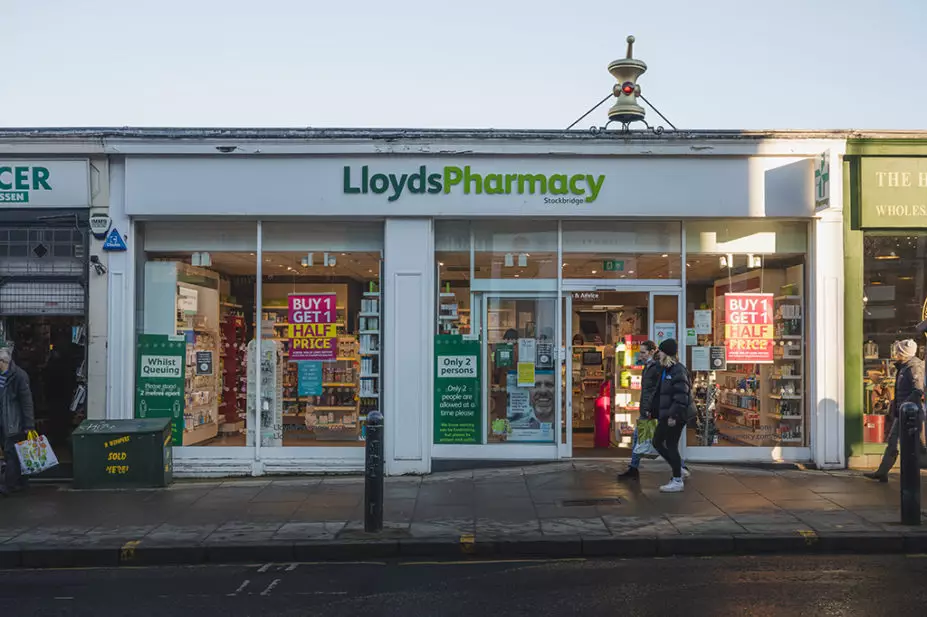
Shutterstock.com
Four health boards in Scotland have told The Pharmaceutical Journal that they are currently accepting requests from some community pharmacies to close or offer a reduced service on Saturdays during the summer holidays.
NHS Greater Glasgow and Clyde, NHS Ayrshire and Arran, NHS Lanarkshire and NHS Highland said they were allowing temporary weekend closures owing to staffing issues, although steps would be taken to ensure minimal impact on patients.
Two other health boards, NHS Fife and NHS Borders, said they had received no requests from pharmacies to remain shut on Saturdays.
In August 2021, the Pharmacists’ Defence Association (PDA) raised concerns after the results of a survey showed more than 50 reports of community pharmacies temporarily closing at short notice in Scotland in a one-week period.
Craig McArthur, director of East Ayrshire Health and Social Care Partnership, told The Pharmaceutical Journal that the partnership and NHS Ayrshire and Arran “have worked with local community pharmacies to agree the temporary closure of some pharmacies on Saturdays in July and August”.
He added: “This planning will allow pharmacy staff to be re-allocated to work during the week to support some pharmacies who are currently experiencing staff shortages due to COVID-19. This will improve the stability of the Monday to Friday community pharmacy service and aims to prevent short notice closures during these busier days.”
A spokesperson for NHS Greater Glasgow and Clyde said contractors “have been able to submit proposals for a temporary arrangement of flexible opening hours, during the peak summer holiday period”.
“This decision has been taken to minimise impact on patients and services users that can be caused by changes to weekday services and unplanned closures.”
The spokesperson added that proposals are only being supported in situations where another pharmacy is in “reasonable travelling distance”.
George Lindsay, chief pharmacist for primary care at NHS Lanarkshire, said they were working to prevent unplanned closures owing to staffing issues over the summer, with 17 of the 144 pharmacies in NHS Lanarkshire temporarily closed or offering a reduced service on a Saturday.
He said: “Community pharmacy companies, including Boots, Lloyds[Pharmacy], and independent pharmacies have worked together and with NHS Lanarkshire to agree a reduced but consolidated service over the school holiday period. Good co-operation has ensured that there remains sufficient capacity from other pharmacies close by to respond to patient needs.”
A spokesperson for NHS Highland said: “Any scheduled closure on Saturdays is agreed between the community pharmacy and NHS Highland, provided other community pharmacies in the direct locality remain open to meet urgent local need. Wherever practicable staff from the closing community pharmacy are directed to work in another community pharmacy in their company to support community pharmacy resilience.”
A spokesperson from Community Pharmacy Scotland said the organisation recognised that all sectors of Scotland’s workforce, especially within healthcare settings, are experiencing resource pressures.
They added: “CPS is therefore supportive of collaborative working between NHS health boards and pharmacy owners to maximise the provision of pharmaceutical care to patients within the resource available. This localised approach ensures any acute resource issues are planned and managed to the benefit of local populations.”
However, in a statement published on 13 July 2022, the PDA said that the closures were based on a “myth” that there are insufficient pharmacists available to staff community pharmacies.
“When a pharmacy is unnecessarily closed it often means patients and carers have severe difficulties in accessing the critical medicines and services they need,” they added.
In response to the PDA’s statement, the Company Chemists’ Association said: “All parts of the healthcare system are struggling to recruit staff and to assume that pharmacies would be immune to such pressures, seems fanciful.
“To accuse some pharmacy businesses of choosing to act with impunity, to restrict patients’ access to NHS funded services, is highly inflammatory.”


